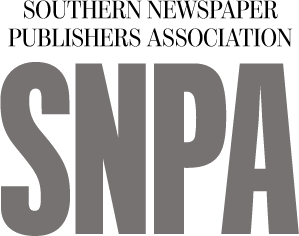Can I just grab photos from Facebook?
Is it OK to use Facebook photos when I need a mug shot?
The following is reprinted from the newsletter of the South Carolina Press Association:
Breaking news. Excitement in the newsroom. Someone is injured. Someone is dead. Someone has been accused of a crime.
We're getting the story. We're telling the world.
The editor: "Quick, I need a mug shot."
A few years ago a number of USC students were killed in a fire at a beach house during fall break. Newsrooms all over South Carolina got names of victims, but needed mug shots.
Facebook to the rescue? Many news organizations covering the tragedy turned to Facebook to grab mug shots from profile pages in what was probably the first widespread use of the site to get nearly instantaneous shots that in less technologically advanced days could have taken a day or longer to acquire.
With the spectacular growth of everything Facebook (except its stock price) it is becoming a "go-to" site for photos of people in the news. It is not my role in life to say "don't do that" when it comes to publication decisions, but I do see some risks.
Copyright: For years newspapers have railed against radio stations infringing copyrights by reading the paper on the air as the station's news show. Of course such activity is an infringement of the paper's copyright. Can you complain about someone else's infringement when you are yourself an infringer? The photo of me posted on my Facebook page was not taken by me; therefore, I do not own the copyright in that photo. I think it would be unusual for most Facebook users to own the copyright in the photos of themselves on their sites. Would someone who owned the copyright in a posted photo sue for infringement? It seems unlikely, but at least judge whether the risk, remote that it might be, is worth taking.
Authentication: I don't spend nearly as much time on Facebook as some of my children do, but in my limited experience I have noticed that some folks post profile photos that aren't of themselves. Some of these postings are obvious as when a cartoon super hero's picture is posted on the site. Others may not be so noticeable, so how do you know you have the correct photo? This could be crucial if you are searching for a mug shot of someone accused of a crime. If you get a mug shot from the police, you are protected from liability even if the police give you the wrong photo. You won't have that protection taking a photo from a private source. You could then encounter libel liability if you post a photo that mistakenly identifies someone as a suspect in a crime. I'm not so certain about liability if you post a photo that misidentifies someone as dead or injured, but your credibility will suffer.
Invasion of privacy: Some people believe that portions of their Facebook pages are private and it is in this restricted space that embarrassing or risqué photos are sometimes posted. Your use of such photos could expose you to a suit, and perhaps liability, under the theory of publication of private facts offending ordinary decency. I don't personally believe that anything posted on the Internet could be considered private, but many Facebook users are convinced otherwise. You probably don't want to be the defendant in the case that settles that point of law.
My favorite Internet-related television spot of the moment is the State Farm Insurance spot with the woman who thinks "They can't put anything on the Internet that isn't true." I have the opposite view: Unless I put it on the Internet it probably isn't true. With that in mind, can you rely on anything that is posted on Facebook by someone you don't know and who you cannot contact for verification?
Finally, some folks looking for content for their own web pages are downloading material posted by others on Facebook or YouTube. When you use an AP story that includes an error, you have the "wire service" defense available in a libel case. You certainly don't have an equivalent defense when grabbing some unknown person's material and putting it on your site. And then there is the possibility that the material that has been posted is itself an infringement of another's copyright, and there is no "innocent infringer" defense.
Sure, there are defenses that could be raised to each of these claims, but as I stress in my newsroom seminars, avoidance of the claim is much more economical than defending against it.
Jay Bender has been SCPA's lawyer for nearly 30 years. He holds the Reid H. Montgomery Freedom of Information Chair at the University of South Carolina and teaches media law at the USC J-school and USC School of Law. Contact him through SCPA at (803) 750-9561.
Keywords
Bender, photographs, Facebook







